Archived Spotlights
Abena Ampofo
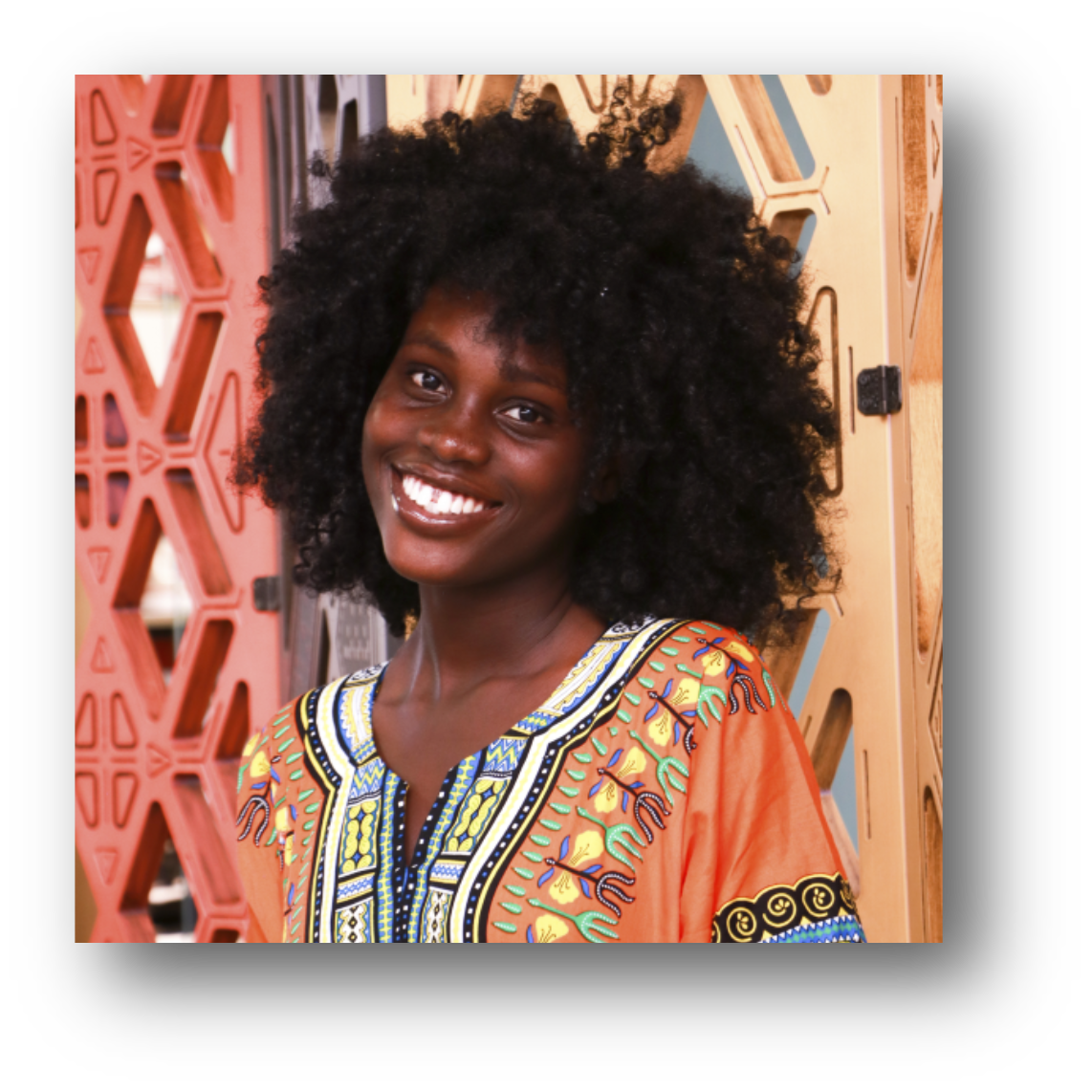
I enrolled at Pitt in August of 2016. An African Studies Ambassador came to promote the certificate in my Introduction to Africa course with Dr. Beeko. I talked to African Studies Advisor Anna Maria Karnes about enrolling in the program. In my Junior year, I became an Undergraduate Ambassador for African Studies and recruited students to the African Studies Program. In the summer of 2019, I was blessed with the opportunity to study abroad in Tanzania. During my senior year, I applied to for the Boren scholarship with the help of Anna Maria. I also enjoyed the Swahili independent study I took part in. Thanks to the African Studies Program and resources at Pitt, I am currently taking Swahili classes through Boren because of the inability to travel due to COVID19.
African studies encouraged me to pursue other ventures including being a Global Ties mentor & Pitt To You ambassador. These two positions entailed helping new, international students navigate the process of moving to a new country and starting a new school.
Additionally, through African Studies, I started learning Swahili in Tanzania through the Pitt in Tanzania program the summer before my junior year. I then arranged an Independent Study through the Swahili department with the assistance of Filipo (Pitt’s Swahili Instructor) and the visiting Fulbright Teaching Assistant, Kennedy. With their help, my Swahili greatly improved because I had not only the experience of learning with others but also the one-on-one instructions with Kennedy. I began my summer program at an ACTFL Level 2 thanks to them. With the assistance of my Summer 2020 instructor, Ms. Jessica Mushi and conversational partner, Christian, I completed the Summer program at a Level 3 -- a big achievement after 8 weeks of intensive and immersive language exposure. I am thankful to my instructor, Paulo at the CIEE in Tanzania for piquing my interest in Swahili and the African Studies program for sharing the many opportunities.
Dara Broadnax
My name is Dara Broadnax and I am a student in the African Studies Program. I am double majoring in both Communications and Africana Studies, have a minor in Political Science and I am working towards the certificate in African Studies. I have a passion for Black Arts, specifically dance, as well as social justice on behalf of Black people across the Diaspora. I found out about this program through my scholarship search for the Ghana study abroad program that I was fortunate enough to be a part of this past summer.
The African Studies Program offers a scholarship for students studying abroad in countries in Africa. I am so grateful to the African Studies Program because if I had not received that scholarship, I most definitely would not have been able to have the amazing experience in Ghana that I did. In order to receive the scholarship, I had to meet with one of the African Studies Advisors to apply for the certificate program. Much to my surprise and delight, I had already fulfilled many of the requirements through my major in Africana Studies as well as my study of Swahili.
My experience in Ghana was like no experience I have ever had. The program was centered around West African Performing Arts as well as West African Culture and Society. Yes, we were taking classes, however the experience did not feel like school. Learning did not just happen in the classroom. Learning occurred in every aspect of the trip. Many African American study Africa but never get the chance to travel to the continent.
It was such an honor to experience Ghana and all that it had to offer. The knowledge that I acquired about my heritage and the strength and resilience of my ancestors was awe inspiring. if asked, I would go back at the drop of a dime! My advice to anyone looking into the African Studies Program or studying abroad in Africa is to just do it. You will be a better person for it and the benefits are numerous.
Doug Crocitto
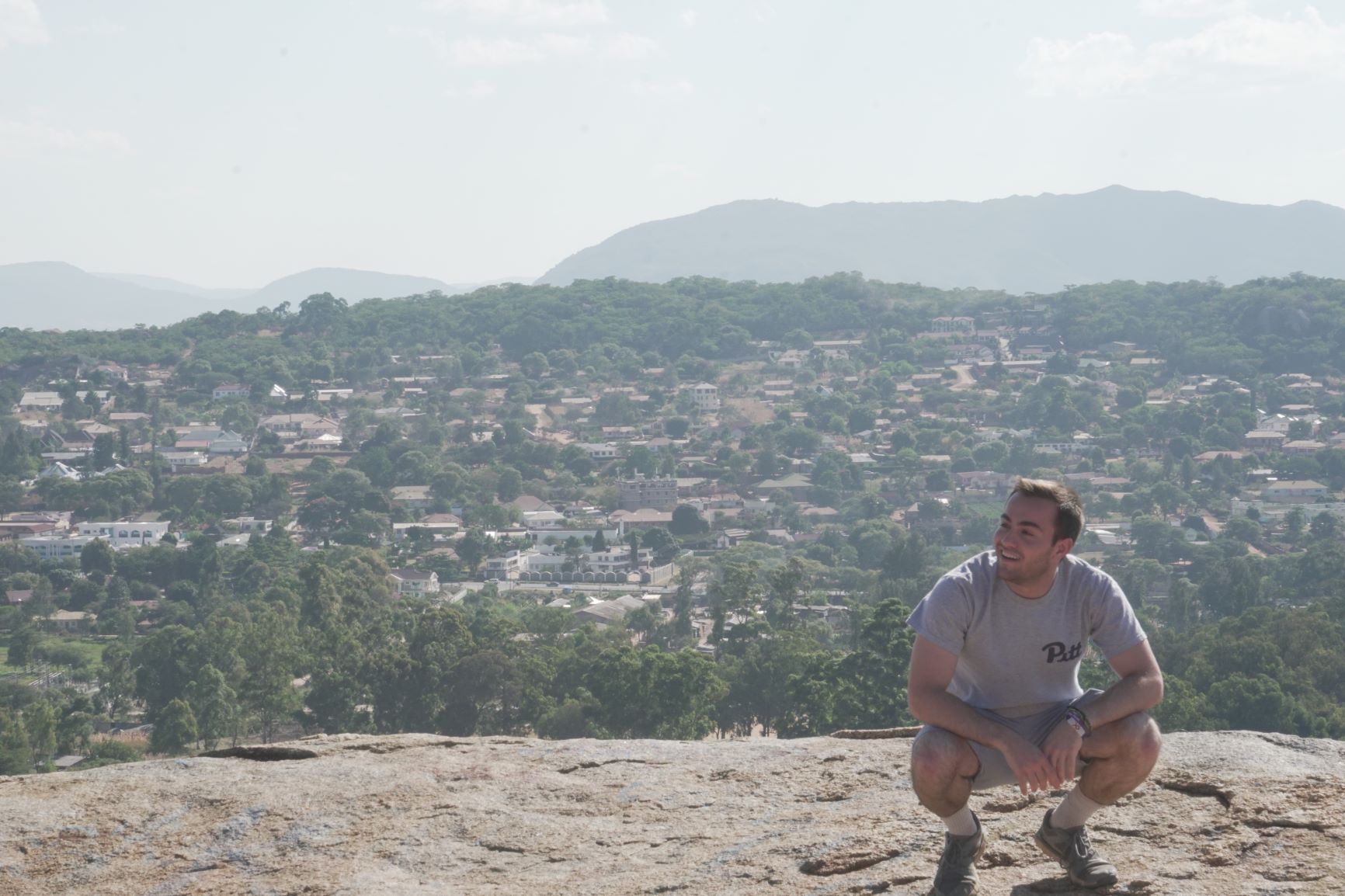
My name is Doug Crocitto and I am a sophomore looking to get into the emergency medicine program. I also am earning a certificate in African Studies, a certificate in global health and a minor in sociology. I am originally from New York and had never been to Africa before this past summer.
Through study abroad, I traveled to Tanzania and took eleven credits in culture, Swahili language and public health. All the classes were amazing and insightful but I probably learned the most from other Tanzanian students at the university. While being completely immersed in such a different yet welcoming society, I was able to learn a completely different way of life. During the trip I made great friends, tried new foods, saw many safari animals and spoke a lot of broken Swahili.
I fell in love with Eastern Africa and when I came back African Studies Program was able to help me finish my African studies certificate and help me get back to Africa this coming summer. I will be applying for the Swahili Critical Language Scholarship as well as volunteering in a Malawian hospital.
Doug Crocitto
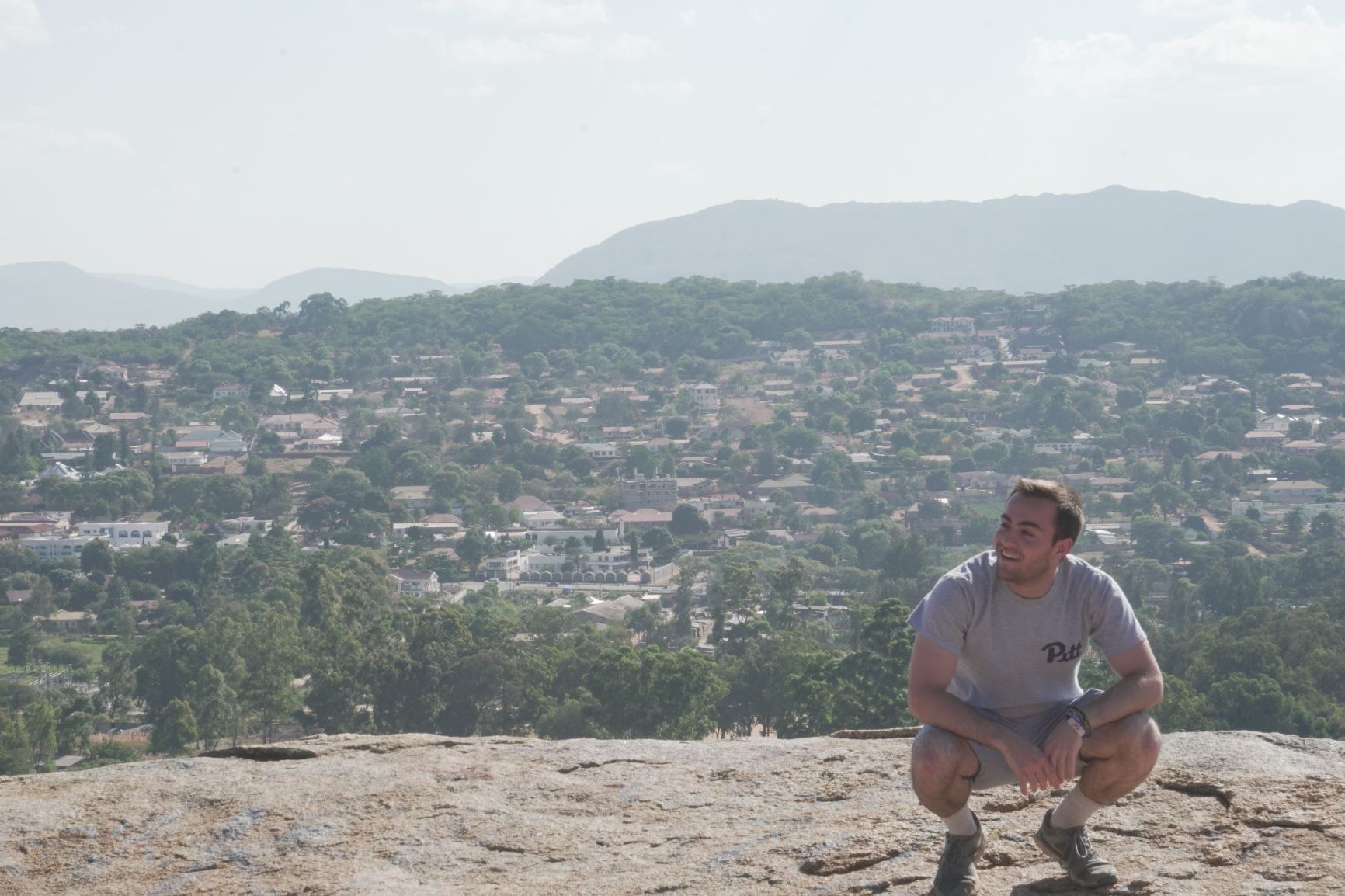
Emergency Medicine Major Wins Critical Language Scholarship, Returns to Tanzania Speaking Swahili With Ease
On a typical day, Doug Crocitto pulls on his embroidered Pitt Emergency Medicine gear, laces up his black boots, and heads off to classes at the University of Pittsburgh’s School of Emergency Medicine. While his Emergency Medical Services uniform is the same as the other students in the program and similar to what professional’s wear in the field, Doug is ready to respond with unique skills that set him apart from the rest.
“I’m waiting for the day when I get a patient who speaks Swahili,” he says with a broad smile and a light in his eyes that shows his love for Africa. Though English is his primary language, Doug now speaks Swahili with ease. He attributes this to winning the Department of State’s Critical Languages Scholarship (CLS) Program, which provided the means for him to study in Tanzania for eight weeks over the summer semester, 2019.
Doug admits living up to the CLS Language Pledge for two straight months was challenging at times. But he credits his Swahili-speaking host family that accelerated his learning. His “Baba,” a term of endearment for his host father, works as a tour guide for a safari company; and his “Mami,” is an experienced host mother who was committed to speaking only Swahili with her children. He says this made the experience more real, and he feels like he has more family now. It also helped him understand the culture on a deeper level and helped him to enjoy his time there beyond being a student studying abroad or as a tourist.
“I love Tanzania, the culture, the way they live and lower levels of stress there,” he sighed. “And I really miss chai time every day around 10:30 in the morning.”
Doug described his time there as “eight weeks of just chilling, speaking Swahili, learning more vocabulary and living as Tanzanians do.” He shared he felt more focused on his career goals, with less stress than academic pressures of life on campus here in Pittsburgh.
Ironically, Doug was selected as an alternate in the CLS Program. But he ended up as the final candidate with an offer to study at the Intermediate Level and he made the most of his experience by networking with advanced level students and fluent speakers the entire time.
“I was the youngest person on the trip and the only healthcare professional in the group,” says Doug. He shared that proved to be helpful to two CLS Program students who became ill and had to be treated in a local hospital.
Doug also had some prior experience in-country with the Pitt in Tanzania Program, where he studied Swahili for five weeks and visited a local clinic during his freshman year. During Summer Semester 2016 he observed local healthcare professionals and learned that medical school in Tanzania is taught only in English. He was able to easily communicate with physicians and clinic workers on this first trip.
“My first experience with Pitt in Tanzania definitely prepped me and made me want to go back,” he says. He returned to campus and spent more time with Swahili Instructor Filipo Lubua, who teaches Swahili with the Less Commonly Taught Languages Center at the University. His knack for speaking Swahili and his drive to return to Tanzania fueled his courage to apply for the CLS Program.
Now a junior and having just completed the requirements to earn his African Studies Certificate, he faces the bulk of his hardest classes in Emergency Medicine.
“We all have a really packed schedule in the health science programs. There is not a lot of time for languages and studying abroad in the health sciences programs. But I still visit with Filipo, and plan to return to Tanzania and other African countries after I graduate,” he said.
He adds that the best part of the CLS is that there are no long-term strings attached, even though Doug has long-term plans to return to the continent and explore more areas of Tanzania.
“I took in as much language and I hope there is more opportunities after I finish my degree,” he said. Doug does have a commitment to share about the scholarship and encourages other students learning Swahili to apply.
“Tanzania was a great experience both times. The hardest is letting people know the opportunity is out there,” he adds. “Our schedules are so packed, getting people involved is hard.”
Doug’s future goals include returning to the continent, learning more about Tanzania, and using his degree in Emergency Medicine in the foreign service. He says he is interested in developing stronger Swahili skills in the future through the Peace Corps or by applying for a Fulbright Scholarship.
The African Studies Program is proud of Doug’s accomplishments and we will him much success as he completes his undergraduate degree. To learn more about how you can earn a Certificate in African Studies and see how our alumni network uses their certificate to impact the world, follow us on social media. Search Pitt African Studies on Facebook, Instagram, Twitter and YouTube.
Khadija Diop
Khadija Diop, more affectionately known as Wawa, is a very intellectual Film Studies major here at the University of Pittsburgh. She is very involved on campus and is a great exemplar to her peers, and yet she would describe herself as a Senegalese American Muslim woman from Jersey City, New Jersey. She participates in the African Students Organization, is an Intern for Global Studies, participates in a documentary class, is in Sigma Gamma Rho Sorority Incorporated, and enrolled in the African Studies Program. Most recently through African Studies, Wawa was one of five hosts at the Let’s Talk Africa event Discussions on Identity and Experience: Americans of African Descent and talked about how she grew up as a Senegalese-American. In particular, she spoke about how being Senegalese-American is an essential part of her day-to-day life. Wawa says her Senegalese culture was never a hindrance to her American culture, but instead has made her stronger. She over time has found a great blend and balance between the two, becoming her own perfect version of a hybrid. The term hybrid really reflects the idea that Wawa never assimilated into one particular culture. She picked the pieces she wanted of each culture and made it her own. However being part Senegalese and a daughter of a strong African mother, she was expected to become a lawyer, engineer, or doctor. However, from a young age she knew she would never pursue any of those career choices. She wanted to produce film. Wawa said, “Being from Jersey, I constantly was seeing people push for what they wanted. This culture I grew up in gave me the strength to know what I truly want. Passion is not an accident; there must be a reason and if you put in work you should be able to obtain it.” Yet, deciding what she wanted to do was easier than telling her mother. Over time and with persistence she convinced her mother that just like those other career choices she would influence the world.
Wawa’s vision for her future in documentaries is to change the way people absorb and compile information. She believes her documentaries can serve as a supplemental education system—a good way to become educated in an affordable and doable way that is cheaper than a university tuition. Most importantly with her documentaries, she wants to change the opinions of those who make important decisions about immigration and refugees. In fact, Wawa is working on a documentary about Senegalese refugees working in Pittsburgh; although the title is still under construction, it is coming out soon, possibly next month.
When asked where her passion for documentaries comes from, she commented that it comes from her experience freshman year, in contrast to Hollywood films. She shared that after growing up in Jersey City, a place underrated with complete diversity and people who are honest and who focus on things they believe is important to them, coming to the University of Pittsburgh was a shock. People who asked her ignorant questions like, “Do you speak African?” and, “Does your father hunt lions for fun?” surrounded her. She soon began to realize that these people were simply not educated about the daily life of an African. And so she began to surround herself with people who wanted to be educated, and she realized that her passion was for educating people who were interested in knowing. In particular, she surrounds herself with people who value the morals they were brought up with and who she believes she has made a strong bond with, like her sisters of Sigmma Gamma Rho Sorority Incoporated.
As Wawa continues to thrive at the University of Pittsburgh, she balances her life everyday with no sleep, coffee as her best friend, and the support of others in her family and Greek community. As she finishes her Sudanese documentary project and her own project on second generation African Americans, she continues with her struggles of being a documentarian and the wonders of time-consuming tedious editing. With pure inspiration on her right side, she truly has a wonderful life coming ahead of her.
Andrew Eschrich
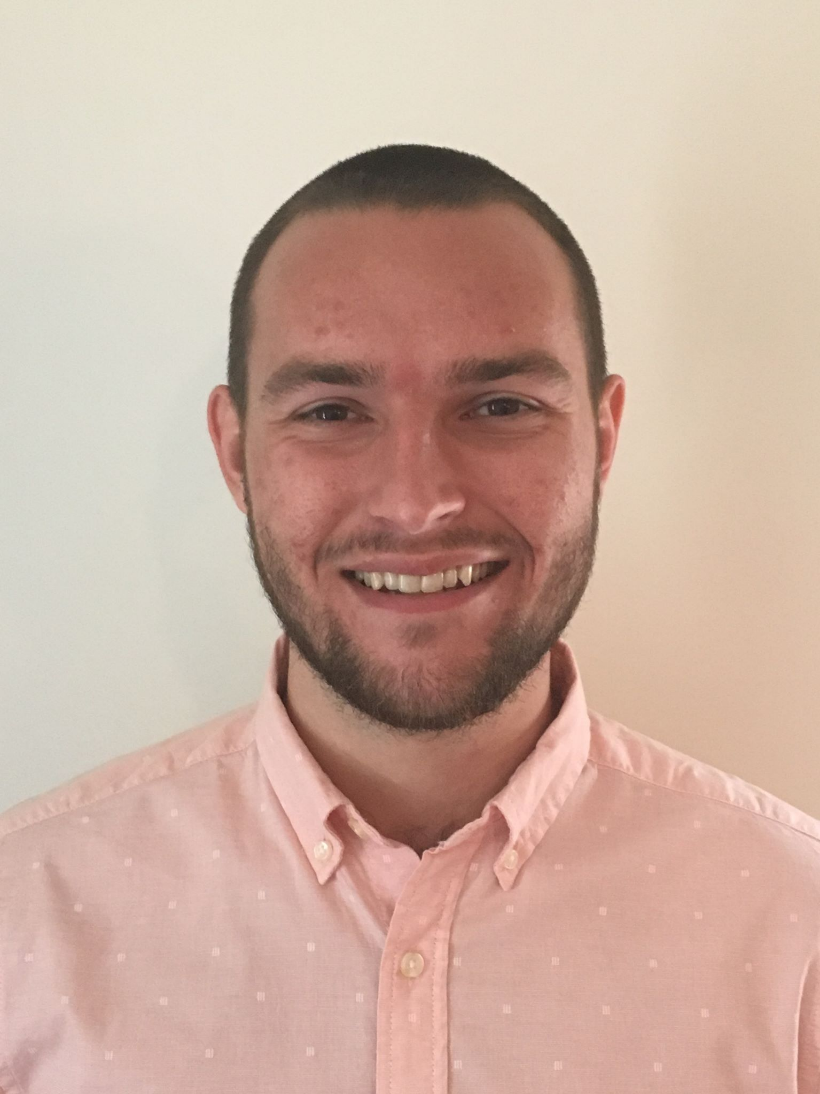
Andrew Eschrich received the undergraduate certificate in African Studies in the Spring of 2018. He is departing for Morocco with the Peace Corps this September. He became interested in the Peace Corps after interacting with volunteers in Uganda. Andrew credits the African Studies Program for his successful application. The program was able to expand his knowledge of African cultures, connected him with clubs and recruiters throughout the university, and provided him with a study abroad experience in Tanzania to add to his impressive application. We wish him luck as he starts his new position as a Youth Development Specialist!
Desiree Gizaza
Desiree Gizaza is a sophomore Psychology Major at the university of pittsburgh. Originally from Philadelphia, PA she now is an African studies intern and a dancer on the Ya’baso african dance troupe. Desiree has dreams of becoming a Physician Assistant, but before moving towards her future she took a journey to learn about her past.
When was the last time you were in Uganda and how did you feel about going back?
Last time I was in Uganda was 2010. I was nervous to go back in summer 2016, I was worried things would have changed and I would not know how to adjust to them.
As soon as you touched down at Entebbe International Airport how did you feel?
Well the first thing I felt was the heat, but I was more excited and nervous. I was excited to see my family but did not know what to expect this time around. Specifically the people of Uganda.
What was the one thing you were looking most forward for?
My grandmother and being able to eat her food again. My favorite dish by her is Porsho and beans.
What did you do when you were there?
I visited the villages my mother and father came from. I participated in my uncles wedding.
How is a Ugandan wedding different from an American wedding?
Not that much of a difference apart from the clothing, intermediate family comes in traditional clothing while everyone else is free to wear what they want. There also is a ceremony months before the wedding. This is the time there are offers and gifts. The gifts are different because they are not animals compared to a coffee pot to the house. Biggest difference is the noise level and the amount of dancing increases 10 notches.
How did you feel when you realized you have to leave?
Very sad since I had bonded a lot with my cousins, and I did not know when I was going to come back.
Would you move to Uganda?
Yes after retirement, but I plan to return frequently throughout my life.
Nana Gyabaah-Kessie
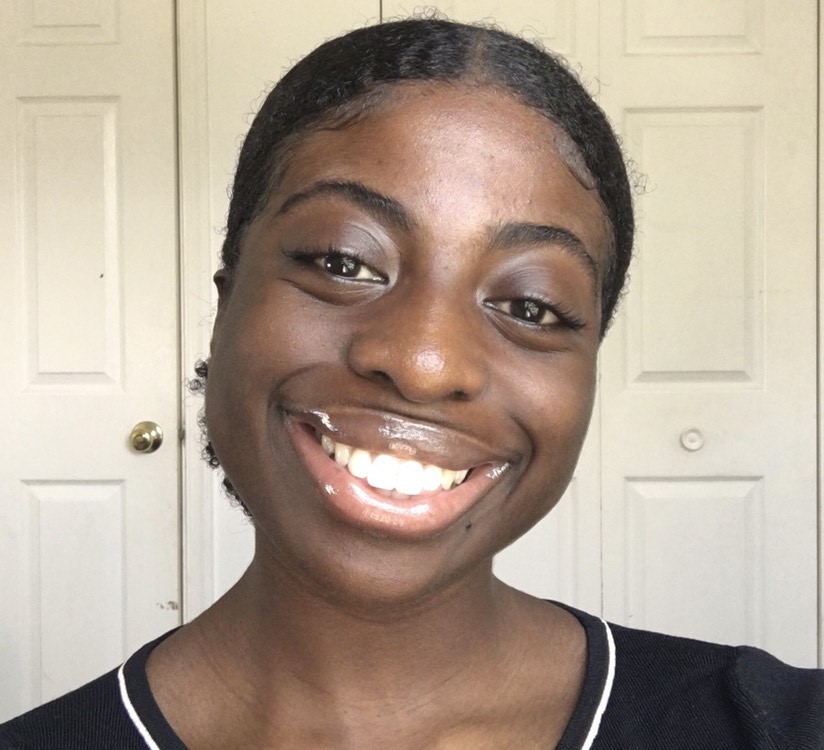
Meet the President of the African Studies Organization(ASO) Nana Gyabaah-Kessie!
Nana is a senior majoring in molecular biology with certificates in African Studies, Life Science Research, and Conceptual Foundations of Medicine. She is busy both inside and outside the classroom and tackles everything as an opportunity to expand her knowledge. Originally born in Ghana, Nana immigrated to the United States at two years old and grew up in PG Country, Maryland. Nana has been a part of the African Studies Organization (ASO) since her freshman year. She originally joined ASO because she was disappointed by the lack of diversity at Pitt. For her, joining ASO was a chance to connect with other African students and the community. As a freshman, Nana was inspired by the ASO President’s passion for highlighting African culture, educating others on African history, and pushing for community-based initiatives. Every year of her involvement, Nana has used this inspiration as motivation to push for something new; harping on the fact that change is not always bad but can be beneficial. This year as president of ASO, Nana’s goal is to make a difference in the community and expand in what they already do. She and the rest of the ASO Executive Board are very excited for this school year. Throughout the next month, ASO will be releasing their very own version of MTV cribs which will show people places to go throughout Pittsburgh. They also plan to host their annual date auction soon which is their main fundraising event. If you are interested in participating, follow ASO for details! In November, ASO plans to host their annual African gala, an event where people come and show up in their best African attire. Although sadly it is online, they have some exciting things planned to make this an amazing virtual experience. Additionally, one special event to look out for is Wazobia, their annual fashion show which takes place in the spring! The theme for this year’s Wazobia is “Ade” which means royalty. Through fashion and beautiful science, they will be showing how Africans and those of the diaspora are inherently royal in their own culture.
For more information on ASO and their events, please make sure to check them out on Instagram @pitt_aso
Written by Undergrad Ambassador Nneoma Uzoukwu
Nicholas Hufnagel
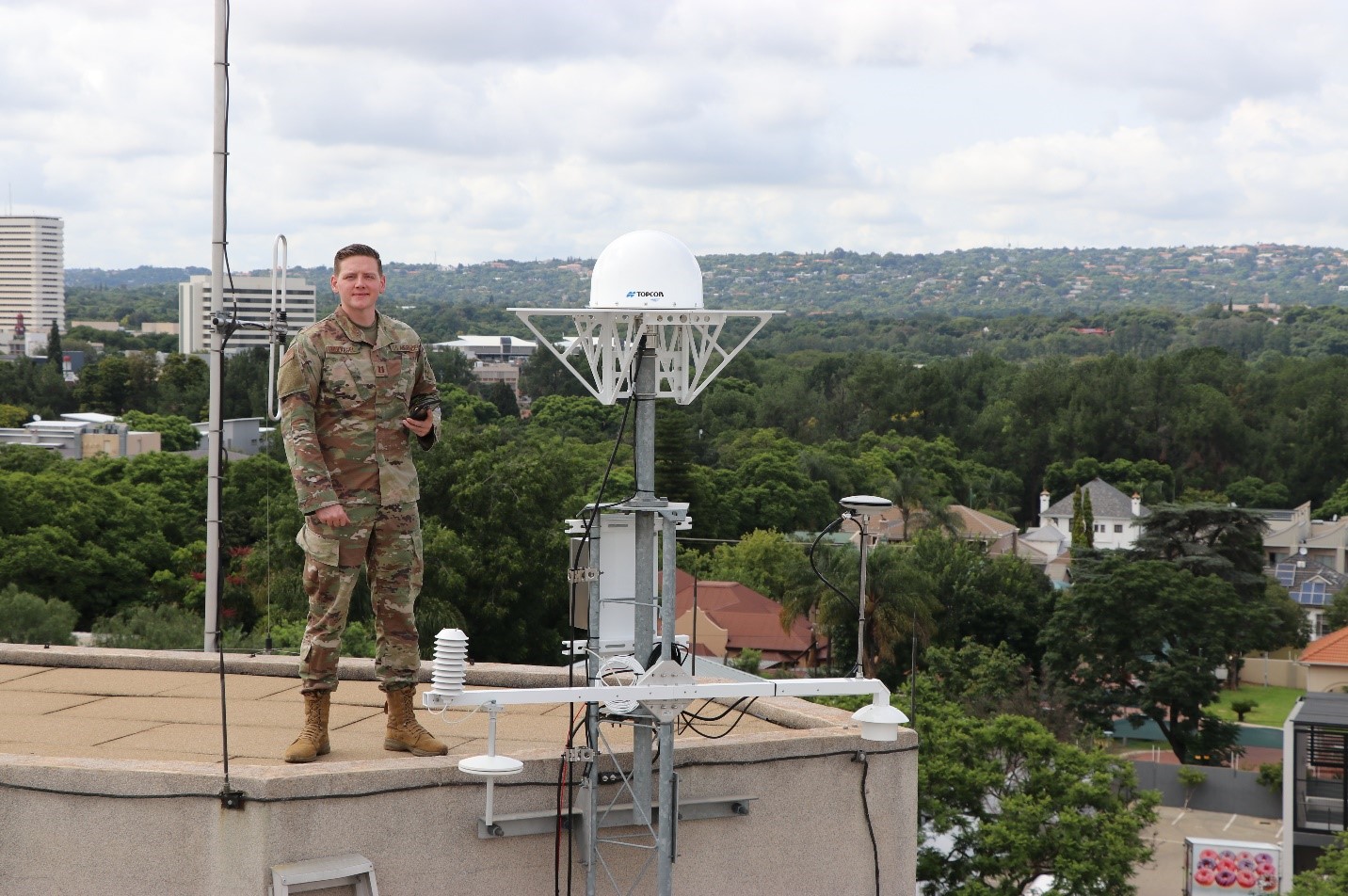
Work with the Air Force took me to Dakar, Senegal, and Cotonou, Benin several times. The connection based on my bachelor's in French, certificate in African studies and the stated goal of working in AFRICOM made these trips logical. However, when I switched to a Space Force position, I thought my time in Africa had come to an end. Luckily, the office that I had stepped into holds a critical role in GPS technologies and maintains equipment sites worldwide—including South Africa. This past month, I led a team of technicians on a mission to upgrade one of the vital monitoring stations that enable the GPS constellation to provide accurate information. As I learned more about the program, mission, and impact, it has only reaffirmed realities of the significance Africa will hold for America's future security and the world.
When I told family and friends that the Space Force was deploying me, most wondered if I was going to the moon. While that may be something years in the future, the deployment to South Africa puzzled many. As hinted at, the GPS satellite constellation incorporates fixed monitoring stations on the Earth. To say that GPS is vital to our daily lives is an understatement. This service provided freely to humanity is the basis for position, navigation, and timekeeping for nearly every component of modern life, from logistics to financial transactions to communications. Initially designed for military applications, GPS has become ubiquitous, and it is something many take for granted. The United States is not alone in providing GPS-like services. From a critical infrastructure perspective, the expansion of China's GPS alternative (BeiDou) is troublesome as it threatens our dominance in this technology field. Increasingly, their investments further target African countries and citizens as a way to diminish our influence. Upgrading and fortifying our infrastructure that supports our partners is a crucial way to maintain international relationships.
Through our partnerships with the Department of State, contractors, and various three-letter organizations, we bring the next generation of GPS capabilities to reality. A Space Force deployment to South Africa sounded surprising, but the work we completed improves position, navigation, and timing for users worldwide. Africa will continue to be a space for competition. This work is critical as the fight moves from planes to cyber in an accelerating way.
Ruba Idris
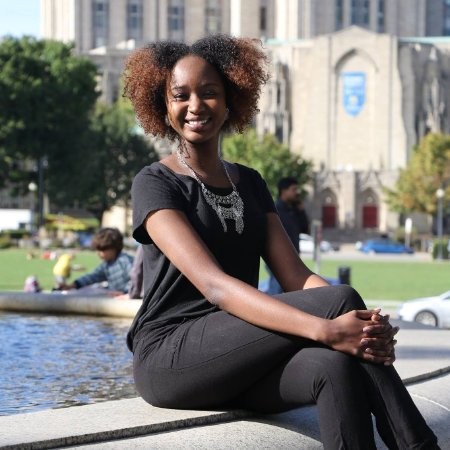
Recent Pitt Grad Wins Princeton In Africa Scholarship, Focusing on Health Services and Nutritional Support for HIV/AIDS Population in Lesotho
Ruba Idris, University of Pittsburgh Class of 2018, is a recent winner of the Princeton in Africa Scholarship and is currently serving as the 2019-2020 Fellow with Baylor International Pediatric AIDS Initiative, in Lesotho, in southern Africa.
We recently caught up with Ruba via WhatsApp, where she offered insight into her first months in the country. We traded some comments back and forth, and the results of our Question & Answer chat are below:
TEAM ASP: You’ve had a phenomenal academic experience at Pitt. What three experiences do you think made your application stand out from the rest?
RUBA: I would say my professors, being part of the African Students Organization and my experiences abroad. I was lucky enough to travel quite a bit during college in various programs, so I already had been exposed to the field of international development, especially on the African continent. Dr. Picard, Dr. Fapohunda and Dr. Lelei have been crucial to my success at Pitt.
TEAM ASP: How many candidates applied for the Princeton in Africa Scholarship?
RUBA: I believe 500 applied. The program only accepts 10 percent of the applicants and there are currently 50 fellows.
TEAM ASP: Did you find internship over classroom experience prepared you more for what you are doing now in Africa?
RUBA: I do. I think the classroom is great to get an idea of what certain subjects are like, but the information remains to be theory until you’re in the field. I value my internship experiences very much and I do believe they have prepared me to live in Lesotho.
TEAM ASP: What do you miss about Pitt’s campus? It’s fall here and it’s raining again. So it can’t be the weather.
RUBA: Haha, good question. I would say the people and the staff that I met there. I also miss the African Studies Program and GSPIA events.
TEAM ASP: Is there something in your suitcase that you packed from Pitt or Pittsburgh?
RUBA: I think I have a Pitt t-shirt.
TEAM ASP: What one item do you wish you had packed?
RUBA: A heavier coat, it gets very cold here.
TEAM ASP: On a serious note, you are on a mission there to support a serious cause and find solutions. What are your goals for the first 30 days? 90 days?
RUBA: My goal for the first 30 days is to increase staff morale here at Baylor and remind everyone of their mission and why they’re here. My goal for the remainder of my time is to try to tackle the issue of nutrition. Many people living with HIV/AIDS [in Lesotho] are malnourished and don’t have access to a lot of food. This ultimately worsens their condition.
TEAM ASP: What is the best part of being in Lesotho so far?
RUBA: Definitely being back on the continent. I always feel like I am home. I also enjoy the freedom and the opportunity to work for such an amazing organization.
TEAM ASP: How will you spend the holidays this year?
RUBA: I will be in Johannesburg and Cape Town with cohorts from the program.
TEAM ASP: When do you return? When will you complete the program?
RUBA: I come back at the end of August 2020.
More About Ruba Idris
Ruba earned a Bachelor’s Degree in Health Services, a Minor in Economics, and Certificates in Health Services and African Studies. She was the recipient of a Nationality Room Scholarship, Department of State Critical Languages Scholarship while at Pitt. Her primary interests lie in foreign affairs, health and development. She intends to pursue a Master’s Degree in International Development. And in the future, a Masters of Public Health.
She originally hails from Sudan, and her cultural duality as a Sudanese-American has provided her with a deeper cultural understanding of countries in the global north and the global south. She aspires to work for various organizations focusing on development such as USAID, the World Bank and the United Nations.
Ruba is passionate about working with people from different backgrounds, exploring various cultures, examining and understanding trends and links within developing nations, and understanding holistic paradigms of development. These interests were portrayed through her panoply of courses, which encompassed language, economics, health and history, amongst other topics, and the various activities she participated in such as study abroad, research and student organizations.
During her time at Pitt, Ruba says she worked to cultivate her leadership skills through different leadership roles in student organizations, which include her positions as president of the African Students Organization and the vice president of Model African Union. She has also expanded her cultural competency and deepened her understanding of development through her study and work abroad in Tanzania, Ghana, and Honduras, and through her research work with local African communities.
Other than academia, Ruba is also very passionate about fashion and owns a T-shirt business that aims to spread knowledge about the continent of Africa. She hopes to one day incorporate fashion into the economic development of the continent by cultivating a robust fashion industry. Ruba is a critical thinker and loves to learn and improve her personal skills. She enjoys being mentally challenged and strives to understand other points of views. She hopes to develop into a well-rounded individual who can mold to any sector within the development realm. She is fluent in Arabic and elementary level Swahili.
The African Studies Program is proud of Ruba’s accomplishments and we will her much success in her future endeavors. To learn more about how you can earn a Certificate in African Studies and see how our alumni network uses their certificate to impact the world, follow us on social media. Search Pitt African Studies on Facebook, Instagram, Twitter and YouTube.
Youhana Martin-Benansio
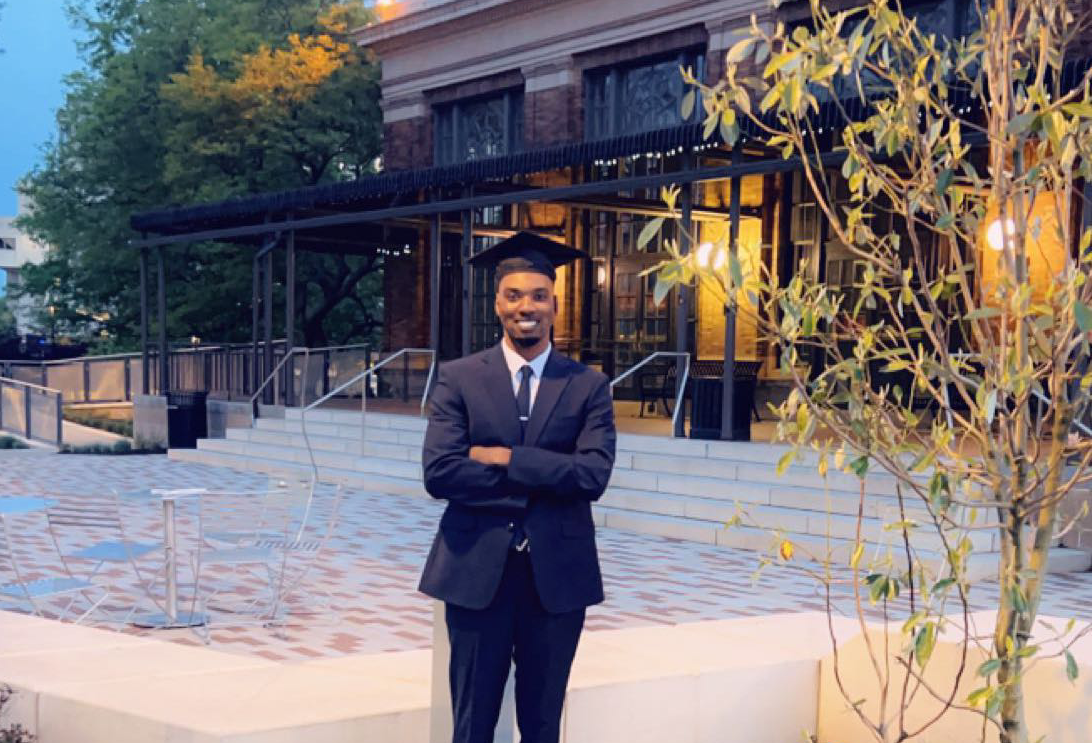
As an undergraduate at the University of Pittsburgh, I studied Social Work, minored in Africana Studies and Political Science, and acquired a certificate in the Center for African Studies (CAS). As a student, I have gained perspectives of Africa beyond the limits of my imagination. The program permitted me to develop academically, foster new friendships, visit different areas of Africa, and has exposed me to many distinct cultures. It provided me with a plethora of opportunities and made resources accessible. During my course of studies, I assumed significant roles. I have served as a Student Ambassador and a Peer Advisor for the Center for African Studies. I organized and promoted many university activities and events and created flyers for the University Center for International Studies. I was accorded the opportunity to represent the university as a delegate in Washington D.C. with several other students at the seventeenth annual International Model African Union Conference in 2019 and was selected again in 2020. The program’s center was a place of striving and thriving and a second home to me. I am profoundly grateful to have enrolled in the program.
Being in the Center for African Studies encouraged me to visit the lands of my parents in Africa once again. So, I traveled and spent time in Aswan, Egypt, and Khartoum, Sudan. During my visit, I observed many social and economic issues, such as famine, homelessness, lack of educational systems, lack of public participation in government, lack of transportation, poverty, and unemployment. When I spoke to the citizens, I noticed nearly all had one thing in common: they were cynical and had little trust in their governments. I profoundly believe that empowering the inclusion of citizens in government is vital, that empowering citizens and presenting them with opportunities to assist with the improvement of their communities will address many of the issues, and cynicism could fade.
Furthermore, I believe that an alliance of states is fundamental to the overall growth and development of Africa. If African states formed alliances, and devotedly worked to increase cross-border cooperation through social and economic integration, this would enable the states to fulfill their potential of providing for its citizens. I was inspired by my childhood experiences, conversations with the citizens, and was propelled by my belief that an allied Africa is a prosperous Africa. Therefore, I worked diligently through my undergrad tenure at the University of Pittsburgh every holiday and summer break. It was not easy; it took time and patience for me to finish constructing the African States Alliance organization. However, I can unequivocally state that my journey in planning and constructing the organization was worth every salt.
Sierra Mason
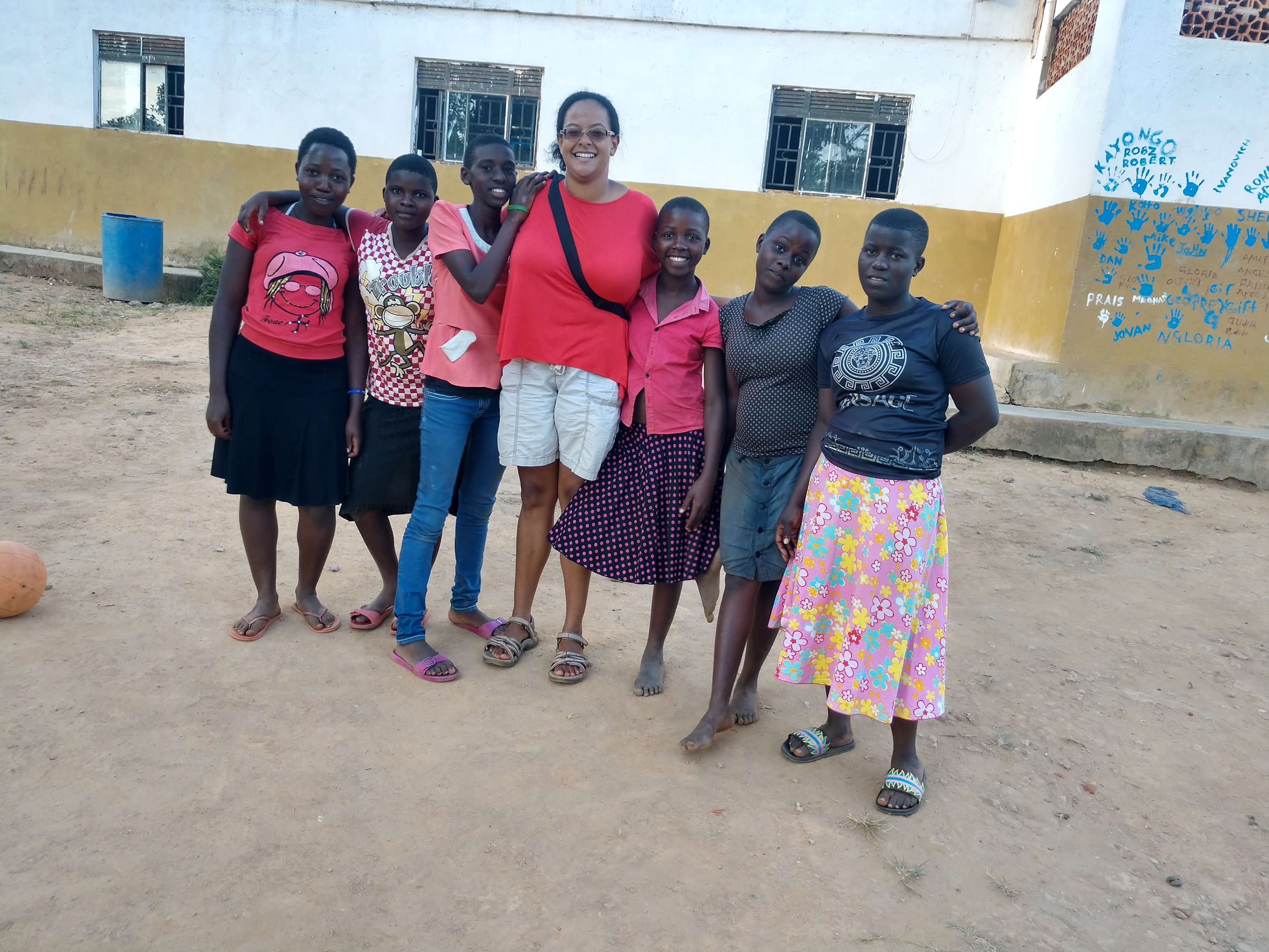
Hello! My name is Sierra Mason and I am a second-year Masters of International Department (MID) student at the Graduate School of Public and International Affairs (GSPIA) with a career focus on individual/community development through music. During the summer of 2018, I had the opportunity to intern at a group home in Uganda: Bright Kids Uganda (BKU). Bright Kids Uganda is based in Entebbe, Uganda and was a wonderful introduction for my first-ever visit to Africa.
I worked with a group of 8 girls, teaching the logistics of music (how to read/write music, etc.) as well as various vocal techniques. It was a truly wonderful experience! There is so much creativity and talent among the children and youth of Uganda, and it was a treat to be able to experience that first hand. However, you can take part in that creativity yourself as the larger component of my internship was to prepare those I taught to make a CD. In addition to being a multifaceted opportunity for the girls I worked with to learn and grow, this CD is also intended to be a revenue source for Bright Kids Uganda. By purchasing the CD, the money will go directly to BKU to financially support the group home. This is a great opportunity to make an impact on the many lives at BKU and within the community there. I am happy to announce that this CD is now live on 6 different platforms: Itunes, Apple Music, Spotify, Amazon, Pandora, and Google Play/YouTube.
Please join me in supporting Bright Kids Uganda by purchasing the entire CD or just a few songs. You can do this by going onto any of the afore-mentioned platforms and searching for: Living Streams Choir: Bright Kids Uganda. If you wish to learn more about Bright Kids Uganda check out their website. Happy listening and Thank you for your support!
Elizabeth Morris
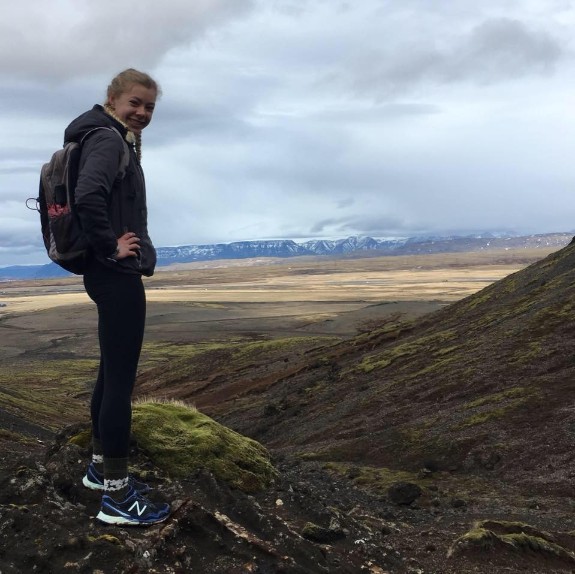
Elizabeth Morris is a senior Anthropology and Ecology & Evolution dual major on a pre-veterinary track. She studied abroad in Iringa, Tanzania during the summer of 2017. During the program she developed a passion for global public health. She met with projects run by UC Davis in Iringa that focused on One Health - the concept that the health of animals effects the health of humans living alongside them and the environment they share. Back at Pitt she continues to pursue public health and African Studies. Elizabeth is now applying to veterinary school with the intent on entering the One Health field. Her goals are to learn how to treat zoonotic diseases to ensure the health of humans living close to animals. She hopes that this field will lead her back to Africa someday!
Nneoma Uzoukwu
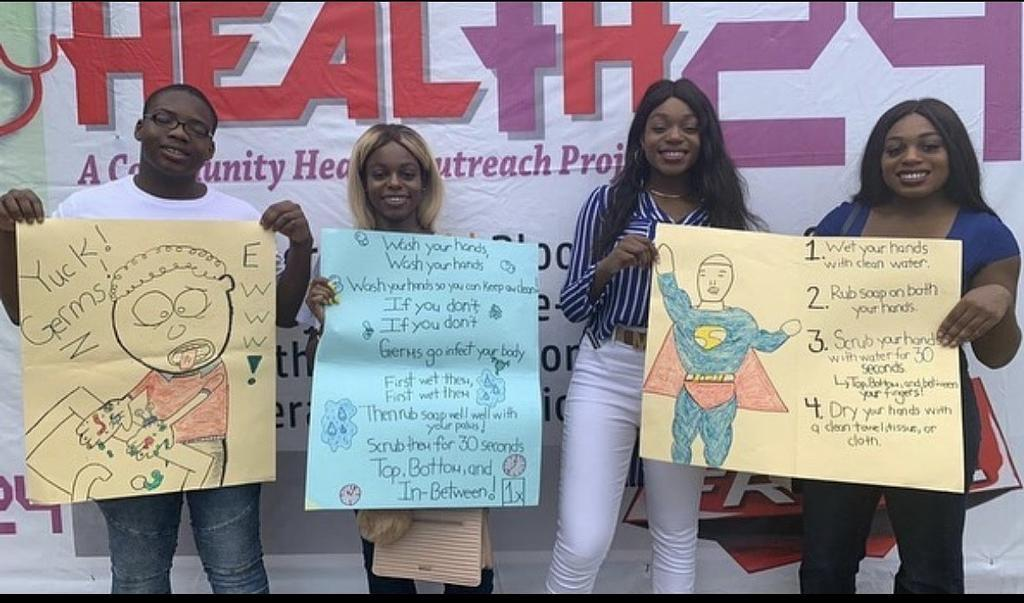
Nneoma Uzoukwu is a senior majoring in Philosophy with a certificate in African Studies and is also in Pitt’s 4+1 Master of Public Health programs studying Epidemiology. Nneoma is very passionate about public health and in the future hopes to impact communities by creating interventions to prevalent diseases on the African continent. Last summer, she was able to travel to both Tanzania and Nigeria to further her knowledge of public health. In Tanzania, Nneoma took two public heath courses through the Pitt in Tanzania study abroad program that taught her about research occurring throughout the African continent. Through these courses, she also had the opportunity to meet several public health officials and learn through practical experience how their research and conclusions led to implementation and a greater impact. During her trip, she was able to meet and interact with local NGOs and see how small programs worked to provide better access to health, improving overall lives in communities.
After spending half of her summer in Tanzania, she visited Nigeria to spend time with family for the remainder of her summer. Here, driven by heavy enthusiasm from everything she learned while in Tanzania, she volunteered as an intern at the Bethesda Child Support Agency, an NGO committed to providing education and support for underprivileged children. As an intern, with her newfound public health knowledge, Nneoma created and led a health initiative program that provided education on hygiene practices to over 200 elementary and middle school aged students. She chose to do a hygiene instruction program initially because during her time in Nigeria, she noticed a lack of knowledge on proper sanitation practice across all ages. This problem contributes to the spread of many communicable diseases. The biggest challenge that she initially faced when creating this program was trying to figure out ways where she could relay her health message as effectively as possible. Nneoma overcame this challenge by incorporating recognizable Nigerian pop culture elements that the children could relate to in her message. For example, she created a catchy song, modeled after the most popular song in Nigeria at the time, which had instructions on washing hands. This program had many successful outcomes. The NGO administration found it very helpful because many of the children in this agency travel from disenfranchised and overpopulated communities where communicable diseases are easily transmitted. Additionally, many of the children she spoke to had never even heard of germs before and were very pleased to learn this information in an interactive way.
Written by Undergrad Ambassador Nneoma Uzoukwu
Vincent Villella
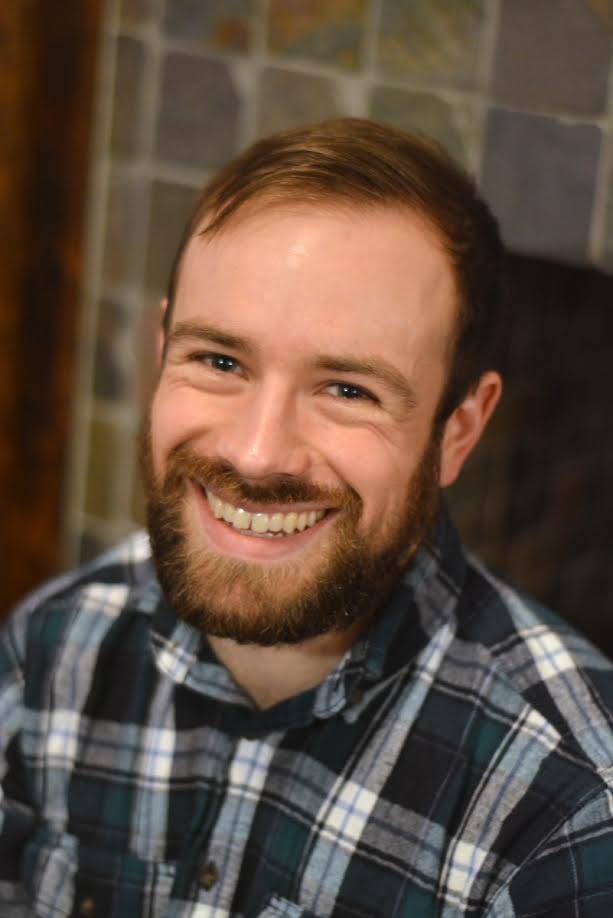
Since I graduated Spring 2018, I moved to Baton Rouge, LA and am teaching high school science. I am particularly lucky to have had an African Studies certificate because I am able to weave an understanding of Africa into my science lessons that incorporates an intimate understanding of Africa to my students who are 91% African American. For many of my students who are of African descent I provide a unique bridge between where they are now and their ancestors overseas.
Grace Wang
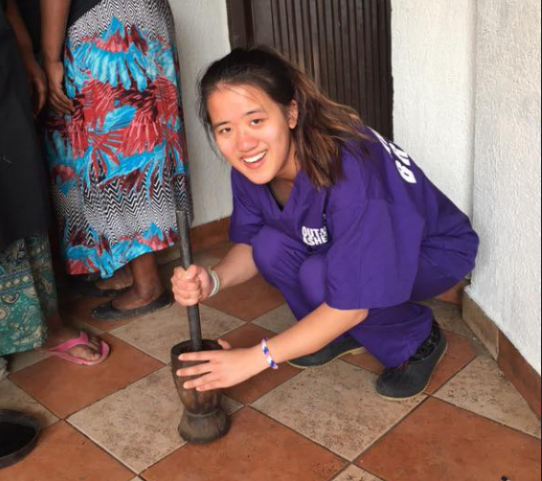
Grace Wang is a junior Biology and Anthropology major and enrolled in the African Studies Certificate Program. She is the president of Pitt Out of the Ashes, a club that partners with the NGO Out of the Ashes and their mission of supporting the impoverished children of Korah, Ethiopia. This summer, Grace went on her second trip to Korah with other Pitt students for a medical brigade.
She says her favorite part of the trip was seeing how happy the patients were after being seen by the doctor and dentist. They were grateful for any medical assistance provided knowing that their suffering could be alleviated, even if only in a minor way. She also enjoyed seeing how well the majority of the 200 sponsored students were doing. They were healthy and doing well in school, which is an improvement to their conditions two years ago she told us.
Tim Young
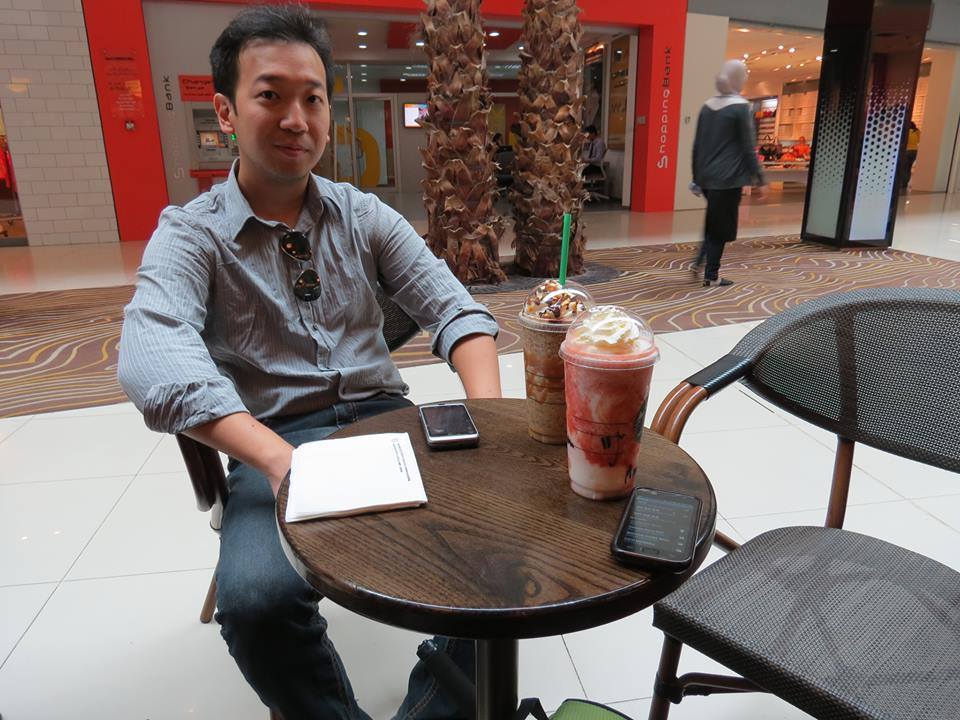
During the summer, I was given the opportunity to work as the summer programming intern at More Than Me Academy in Monrovia, Liberia. More Than Me is a non-profit organization that started out as a scholarship program for the most vulnerable girls in the West Point community of Monrovia, Liberia. The organization's mission is to use education as a means to protect and empower young girls. More Than Me launched a private, tuition free, K-4 Academy in 2013. The organization also uses a holistic approach in its mission and combines services such as healthcare, social work, child protection, family planning, and food program.
My duties as the summer programming intern varied from day to day, but generally I planned, coordinated, scheduled, and managed a 6-week summer program for 170 K-6th grade students after assessing school and community needs. In addition, I collaborated with teachers, school administrators, and students to design and facilitate the program. After conducting a baseline assessment, the More Than Me team and I agreed upon a schedule composed of both academic and extra-curricular classes/activities promoting holistic development for the girls. Mondays and Tuesdays were dedicated towards academic growth, particularly focused on classes such as English, Math, Phonics, and Science. As for the remaining days, there were a wide variety of classes such as Life Skills/CME (Character and Moral Education), Quizzing/Spelling Bee/Debate, Music, Embroidery, Home Economics, Story Book Reading, Arts and Crafts, Jewelry, Health Education, and Creative Writing.
Throughout the duration of the program, it was a privilege to work with such an amazing staff all of whom passionately devoted themselves entirely to their work and mission. Of course, the students were also always pleasant to be around with. For example, whether it would be dramatic presentations on controversial issues on combating human trafficking, singing songs in French, writing down the recipe to make potato greens, or making beads in their Jewelry class; I sincerely appreciated and enjoyed being a part of it all.
My time in Liberia and at More Than Me has been regrettably too short but as I return, I am empowered with stories and memories of hope and perseverance that won’t be forgotten.
